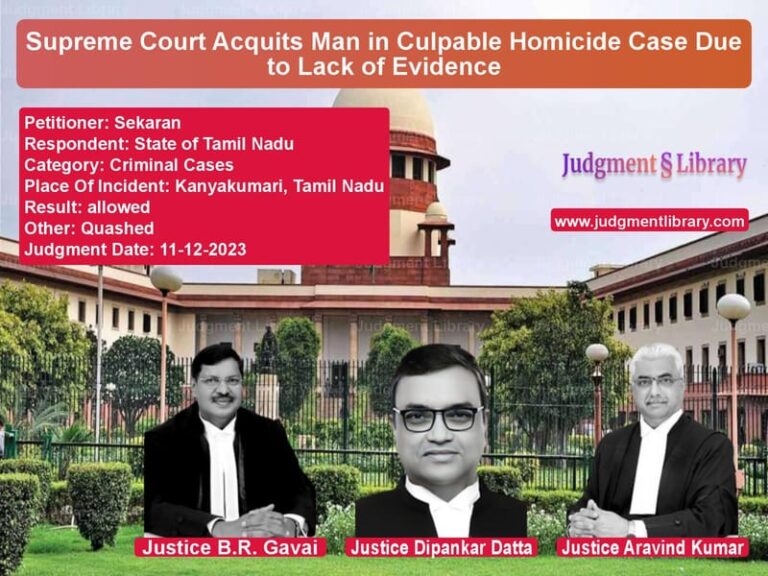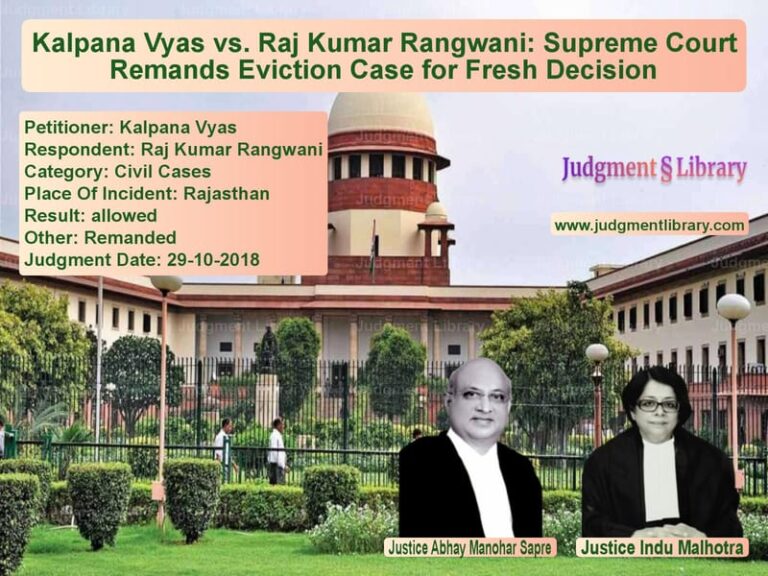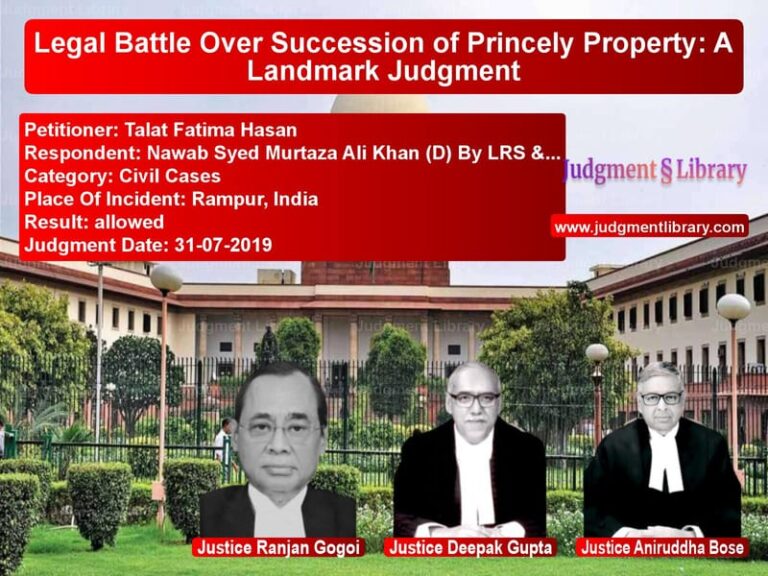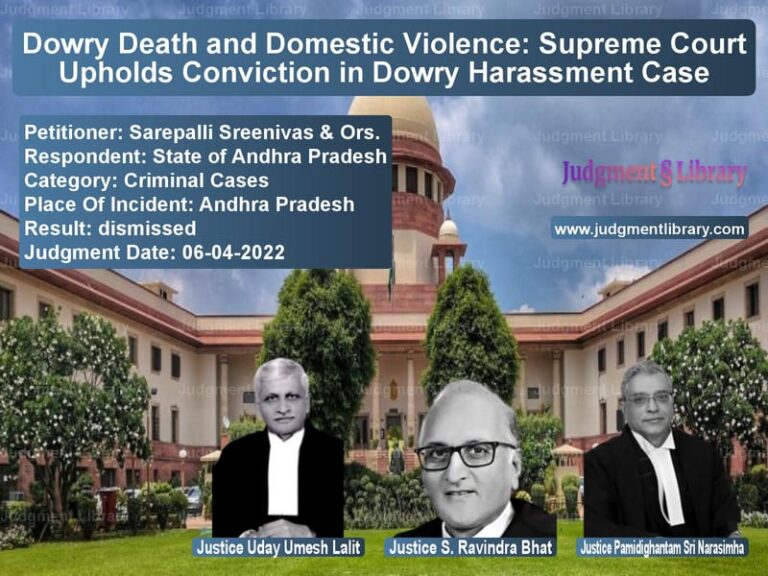Indian Oil vs R.M. Service Centre: Understanding Dealership Termination and Legal Ramifications
The legal battle between Indian Oil Corporation Ltd. (IOC) and M/S R.M. Service Centre sheds light on the stringent regulatory framework governing fuel dealerships in India. This case revolved around allegations of fuel adulteration and procedural lapses in testing, ultimately resulting in the termination of the respondent’s dealership. The Supreme Court was tasked with determining whether the termination was legally sound, given the procedural delays and potential violations of the Marketing Discipline Guidelines, 2012.
The dispute arose when Indian Oil terminated the dealership of M/S R.M. Service Centre following an inspection that revealed discrepancies in fuel stock and testing irregularities. The dealership was accused of violating the Marketing Discipline Guidelines (MDG) 2012, particularly concerning stock variations and reference density records. The respondent contested the termination, arguing that the procedural flaws in sample testing rendered the action unlawful. The Gauhati High Court ruled in favor of the respondent, prompting Indian Oil to appeal to the Supreme Court.
Background of the Case
The respondent was granted a retail dealership to sell petroleum products, including motor spirit (petrol), High-Speed Diesel (HSD), motor oil, and grease, at a depot in Nalbari, Assam. The dealership was initially granted under a special category for physically disabled persons.
On May 6, 2013, a joint inspection was conducted at the dealership’s premises. During the inspection, several violations were noted:
- Stock variation beyond permissible limits.
- Absence of reference density records for one of the tanks.
- Failure to produce tanker truck retention samples.
Based on these findings, the sale and supply of fuel from the respondent’s retail outlet were immediately suspended. IOC collected three fuel samples for further analysis: one was sent to the laboratory, another was retained by the Field Survey Officer, and the third was handed over to the dealer.
The dealer was issued a show cause notice, demanding an explanation for the irregularities. The dealer responded on May 21, 2013, attributing the discrepancies to a malfunctioning dispensing unit, which allegedly displayed incorrect readings.
Petitioner’s Arguments (Indian Oil Corporation)
Indian Oil Corporation justified the dealership termination on the following grounds:
- The fuel sample failed to meet BIS III specifications in both initial and re-tests.
- The dealership was found in violation of critical clauses under the Marketing Discipline Guidelines, 2012.
- Stock variation beyond permissible limits and adulteration constituted severe violations that warranted termination.
- The High Court erred in interpreting the guidelines as mandatorily requiring strict adherence to sample testing timelines.
- The procedural gaps raised by the respondent did not negate the findings of fuel adulteration.
IOC maintained that the presence of sludge in the sample retained by the dealer did not undermine the reliability of the other samples. The organization emphasized that stock variation, coupled with a failed sample test, automatically warranted termination under the MDG 2012.
Respondent’s Arguments (R.M. Service Centre)
The respondent challenged the termination on the following grounds:
- The delay in sample testing violated procedural mandates under MDG 2012.
- The umpire sample, which was retained by the dealer, was found to contain sludge, casting doubt on the integrity of the testing process.
- The termination was in violation of Clause 1.5(v) of MDG 2012, which required adherence to the Motor Spirit and High-Speed Diesel (Prevention of Malpractices in Supply & Distribution) Order, 2005.
- Procedural irregularities, including non-compliance with Section 100 of the Code of Criminal Procedure, 1973, rendered the termination invalid.
- The guidelines’ sample testing timeline should be considered mandatory, as deviations could compromise test reliability.
Supreme Court’s Judgment
The Supreme Court ruled in favor of Indian Oil Corporation, overturning the High Court’s decision. The Court observed:
- The term “preferably within 10 days” in the guidelines did not impose a mandatory timeline for sample testing.
- The presence of sludge in one sample did not invalidate the other test results.
- Stock variations beyond permissible limits, coupled with a failed fuel sample, fell under critical irregularities warranting termination.
- Since the dealership agreement required strict adherence to the guidelines, IOC had the right to terminate the respondent’s dealership.
In delivering its verdict, the Supreme Court stated:
“We find that the order passed by the High Court is not legal and sustainable and, thus, the same is set aside. The writ petition is dismissed and the termination of dealership is held to be valid and legal. Civil Appeal is allowed.”
Key Takeaways
- Sample testing timelines in MDG 2012 are advisory, not mandatory.
- Fuel adulteration and excessive stock variation justify dealership termination.
- Procedural safeguards under the Motor Spirit and High-Speed Diesel (Prevention of Malpractices in Supply & Distribution) Order, 2005 apply only in criminal cases.
- Courts generally uphold dealership terminations if contractual guidelines are followed.
Implications of the Judgment
This judgment reinforces the authority of oil companies in enforcing dealership agreements and marketing discipline guidelines. The ruling highlights the need for dealers to ensure compliance with stock reconciliation and quality control measures. It also underscores that procedural lapses alone may not invalidate actions taken against erring dealers, especially when evidence of fuel adulteration exists.
For dealership operators, this case serves as a cautionary tale about maintaining accurate records, ensuring quality control, and promptly addressing discrepancies. The judgment sets a precedent for future cases where procedural irregularities are used as a defense against dealership termination.
Petitioner Name: Indian Oil Corporation Ltd..Respondent Name: M/S R.M. Service Centre.Judgment By: Justice L. Nageswara Rao, Justice Hemant Gupta.Place Of Incident: Nalbari, Assam.Judgment Date: 07-11-2019.
Don’t miss out on the full details! Download the complete judgment in PDF format below and gain valuable insights instantly!
Download Judgment: Indian Oil Corporati vs MS R.M. Service Cen Supreme Court of India Judgment Dated 07-11-2019.pdf
Direct Downlaod Judgment: Direct downlaod this Judgment
See all petitions in Corporate Governance
See all petitions in unfair trade practices
See all petitions in Company Law
See all petitions in Judgment by L. Nageswara Rao
See all petitions in Judgment by Hemant Gupta
See all petitions in allowed
See all petitions in supreme court of India judgments November 2019
See all petitions in 2019 judgments
See all posts in Corporate and Commercial Cases Category
See all allowed petitions in Corporate and Commercial Cases Category
See all Dismissed petitions in Corporate and Commercial Cases Category
See all partially allowed petitions in Corporate and Commercial Cases Category







